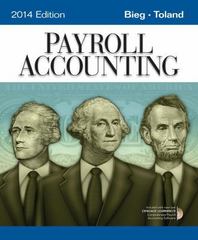Question
Dyson relocates production to South-East Asia In 2006 the Dyson dual cyclone bag less cleaner had outsold Hoover in terms of sales value in its
Dyson relocates production to South-East Asia
In 2006 the Dyson dual cyclone bag less cleaner had outsold Hoover in terms of sales value in its own US 'backyard', despite Hoover being a household name in vacuum cleaner production since 1908. Dyson is now the US market leader, with around 21% of the US cleaner market, ahead of Hoover's 16%. Although Hoover sells more vacuum cleaners by volume, the higher technology Dyson cleaners command a premium price, giving greater sales value from lower volume sales. James Dyson points to some key decisions several years earlier as the foundation for this success.
Dyson had announced that it was moving production of its washing machines from the UK to Malaysia, which followed its earlier decision in 2002 to shift production of its revolutionary dual cyclone bagless vacuum cleaner to Malaysia with the loss of over 800 jobs at the Dyson factory in Malmesbury, Wiltshire, which had produced some 8000 vacuum cleaners per day.
Dyson was keen to point out that since the day the first Dyson dual cyclone vacuum cleaner went on sale in 1993, the company had been operating in a price-cutting market in which its competitors were able to pass on to their customers the lower costs from manufacturing outside the UK. In contrast Dyson has faced the further problems of rises in UK labour costs, land prices, taxation and other overhead costs while still trying to substantially increase its investment in new technology. For example, direct labour costs in Britain had doubled over the previous ten years, partly because of the need to pay high wages in an area around Swindon with almost zero unemployment.
Dyson claimed that the sums no longer added up and it faced going out of business if it continued manufacturing its product in the UK. As of September 2002 all vacuum cleaner production had shifted to Malaysia. The company argued that its production costs will benefit from the much lower wages in Malaysia, equivalent to 1.50 per hour as compared to the then 4.10 per hour in the UK. Indeed the company estimated that lower wages would reduce its unit production costs by around 30%. Further cost savings would also come from now having most of its component suppliers nearby (South-East Asian component suppliers having progressively replaced those from the UK) and being much closer to emerging new markets in Japan, Australia and the Far East. In addition, the Malaysian government had offered various 'subsidies' in the form of grants for setting up the Dyson factories there, as well as lower taxes and other benefits.
While lamenting the loss of UK jobs, the consolation to Dyson in moving his vacuum cleaner manufacturing to Malaysia was that it would now generate enough cash to maintain the company's commitment to reinvesting up to 20% of turnover in research and development (R & D). Dyson believed that it was the technological advantages secured by R & D that would keep the company alive and ensure that 1150 other jobs in Malmesbury were safe, more than 300 of which involved engineers, scientists, designers and testers - the brains that ensure Dyson products remain a step ahead of the rest. Dyson claims to have exported the brawn, keeping the higher-level value-added parts at home since Dyson's comparative advantage lies in researching and designing new products to ensure the company stays two steps ahead of its rivals, most of whom manufacture in the Far East. Indeed he claimed that to have followed the rest of British industry, which invests an average of only 2% of turnover, would have been to neglect Dyson's engineering and technological heritage and to follow in the footsteps of Britain's car, television and other domestic appliances.
As noted above, Dyson's decision to switch production away from the UK was closely related to increasing supply but at lower cost, with labour costs and office rents in Malaysia in 2009 still at a third of the UK level. Production in Asia also meant that the costs of exporting to large markets in this area was minimised, which enabled Dyson to compete globally with such companies as Electrolux of Sweden, Glen Dimplex of Ireland and Candy of Italy. The innovative nature of the company has continued with the introduction in October 2006 of the Dyson 'Airblade', the first hygienic hand dryer which is 83% more energy efficient than its competitors. Dyson, is the 88th largest private company in the UK, and is 25th in the fastest growth of profits league, according to the Sunday Times/Price Waterhouse Coopers Profit Track 100. This publication tracks the top performing UK private companies, and in 2007 it reported that since 2002 Dyson's operating profits had grown at an average rate of 73% per year. The strategic move to outsource production while keeping the research base in the UK seems to have borne fruit in terms of profits growth.
Questions
1 How can Dyson argue that it is in the interest of his British workforce that he relocates production to Malaysia?
2 Can you suggest any implications of this study for developed and developing countries?
3 Can you apply the idea of relative unit costs (RULCs) in Box 1.1 to this situation?
Step by Step Solution
There are 3 Steps involved in it
Step: 1

Get Instant Access to Expert-Tailored Solutions
See step-by-step solutions with expert insights and AI powered tools for academic success
Step: 2

Step: 3

Ace Your Homework with AI
Get the answers you need in no time with our AI-driven, step-by-step assistance
Get Started


